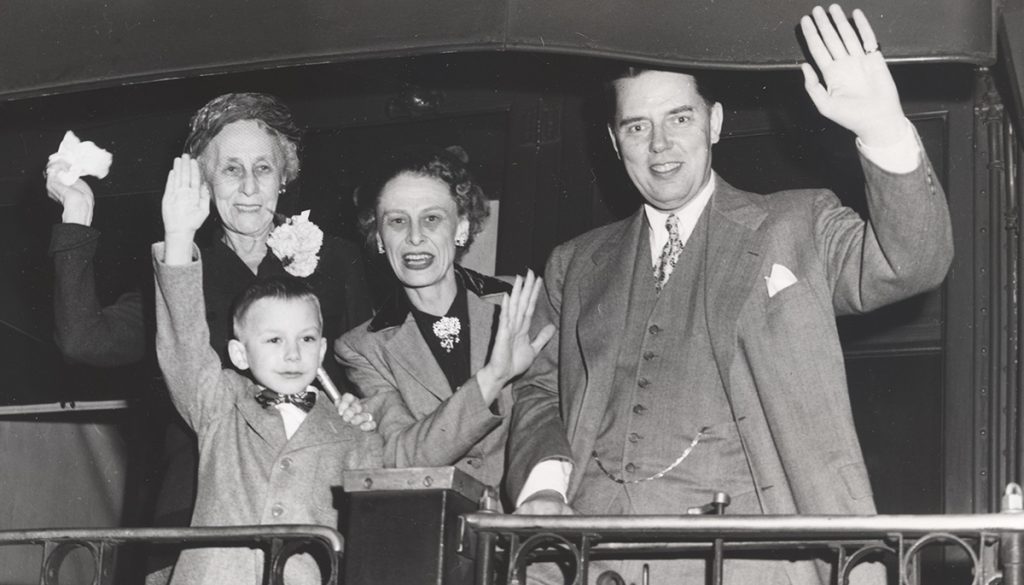by Matt Richardson, Archivist and Special Collections Librarian
The McGovern Historical Center is proud to announce that audio recordings featuring Nobel Prize winners Philip S. Hench and Edward C. Kendall are now available on our collections site.
In 1950 the Nobel Prize in Physiology or Medicine recognized Philip S. Hench, Edward C. Kendall, and Tadeus Reichstein “for their discoveries relating to the hormones of the adrenal cortex, their structure and biological effects.”
Years later, Dr. Hench’s son, Dr. Philip Kahler Hench, donated many of his father’s papers and books to the McGovern Historical Center. Included along with those papers were phonograph records with recordings of speeches, interviews, and events featuring Dr. Hench, his colleagues, and other contemporary figures. While several of these had been transferred to CDs, they are finally getting the treatment they deserve—preservation via the TMC Library’s digital storage and access via the Web. Meanwhile, the dictation disks from Hench’s collection are high on our list of future audio digitization projects.
Among the newly available content:
- Philip Hench and Edward Kendall speaking on CBS about “compound e,” May 28, 1949
- A speech by Dr. Hench, likely given at the Seventh International Congress of Rheumatic Diseases in New York City, June 1949
- The opening ceremony for the Arthritis and Rheumatism Foundation’s nationwide campaign, Boston, spring 1950
- Recordings of the Nobel Banquet in Stockholm, December 10, 1950
- Dr. Hench and Dr. Kendall discussing cortisone on the Bob Considine Show on WHAM-TV, June 8, 1951
- And the outlier: a radio broadcast of the American Legion Citation for Distinguished Service presented to the Drs. Mayo, Rochester, Minnesota, August 8, 1934. Featuring President Franklin D. Roosevelt!
We knew we had two Nobel Prize winners on our hands, but we didn’t realize there was going to be a president in the mix. That last recording had only been labeled as “American Legion Citation for Distinguished Service for the Drs. Mayo,” with no indication of who the speakers were. It’s not every day you stumble upon an unknown archival recording of a president (since it was broadcast on the radio, it’s probably not unique, but it’s still pretty exciting).
We hope you’ll take a listen!
![Philip Hench and others onstage at a ceremony [MS076_b29f1_stage, MS 076 Philip S. Hench, MD papers, McGovern Historical Center, TMC Library]](http://library.tmc.edu/mcgovern/wp-content/uploads/sites/5/2022/07/MS076_b29f1_stage.jpg)
![Philip Hench and family in formal attire. [MS076_b29f1_family_formal, MS 076 Philip S. Hench, MD papers, McGovern Historical Center, TMC Library]](http://library.tmc.edu/mcgovern/wp-content/uploads/sites/5/2022/07/MS076_b29f1_family_formal_larger.jpg)
